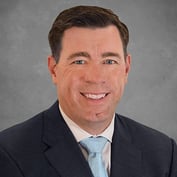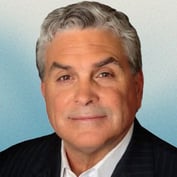What You Need to Know
- Martha Shedden was recently accepted into the National Academy of Social Insurance, following years of Social Security advocacy work.
- She will continue to focus on improving politicians' and the public's understanding of Social Security.
- There is widespread support among Americans for raising payroll taxes and lifting the tax cap, Shedden says.
When one sets politicking aside, there is far more agreement than disagreement about the ways to fix Social Security, according to a well-known Social Security reform advocate.
Last week, Martha Shedden, the co-founder of the National Association of Registered Social Security Analysts, announced that she had been accepted into the National Academy of Social Insurance.
As Shedden told ThinkAdvisor in a new interview, the NASI is a nonprofit, nonpartisan organization made up of the nation’s leading experts on social insurance. Its mission is to advance solutions to challenges facing the nation by increasing public understanding of how social insurance programs such as Social Security, Medicare and federal unemployment benefits contribute to economic security.
Shedden said her induction into the NASI was an important personal milestone after years of challenging advocacy work. Simply put, advocating for Social Security reform is often thankless and slow-moving work, and so joining up with the NASI feels like a concrete step forward.
But even more important than any sense of personal achievement, Shedden said, is the new opportunity to collaborate with her fellow NASI members on what she sees as her most important professional goals. These are, in a nutshell, to improve the public’s understanding of the Social Security program and to reduce the amount of “unnecessary partisan division” that has prevented the uptake of sensible and concrete corrective actions that the vast majority of Americans support.
More Agreement Than Disagreement
According to Shedden, a wealth of public survey data shows the vast majority of Americans actually agree on the importance of Social Security — and on the best ways to shore up the program’s finances.
NASI data, for example, shows nearly three in four Americans say they “don’t mind paying for Social Security” because they value the benefit for themselves and their families, and for the security and stability it provides to millions of retired Americans, disabled individuals, and children and widowed spouses of deceased workers.
Notably, Shedden pointed out, nearly nine in 10 Americans agree that current Social Security benefits do not provide enough income for retirees, and seven in 10 agree that Congress should seriously consider raising future Social Security benefits in order to provide a more secure retirement for working Americans.
According to Shedden, even more important than the broad-based agreement about the importance of Social Security is the consensus about changes that could be made to ensure the program can remain finically viable for the long term. She pointed to an NASI trade-off analysis that shows seven in 10 Americans would support a package of changes that increases Social Security revenues, pays for benefit improvements and eliminates the projected financing gap.
Specifically, the vast majority of Americans say they would support a plan that would gradually eliminate the cap on earnings that are taxed for Social Security, currently set at $160,200 for 2023, especially if the benefits formula was adjusted to allow higher earners to garner a higher benefit in retirement. Similar numbers support the notion of slowly raising the Social Security tax rate that workers and employers each pay from the current 6.2% of earnings to 7.2%.
Shedden says the data is clear, and that the vast majority of Americans agree that it is critical to preserve Social Security benefits for future generations, even if it means increasing Social Security taxes paid by working Americans. More than eight in 10 agree it is critical to preserve Social Security benefits for future generations, even if it means increasing taxes paid by top earners.








 February 08, 2023 at 02:30 PM
February 08, 2023 at 02:30 PM












 Copyright © 2024 ALM Global, LLC. All Rights Reserved.
Copyright © 2024 ALM Global, LLC. All Rights Reserved.